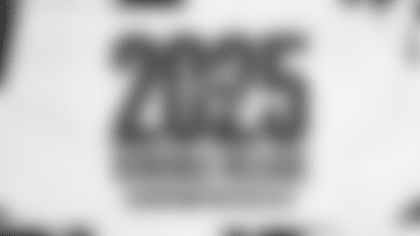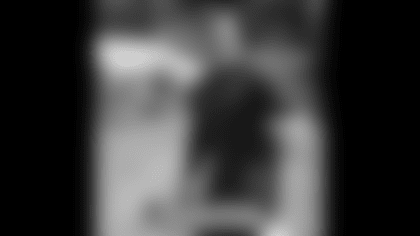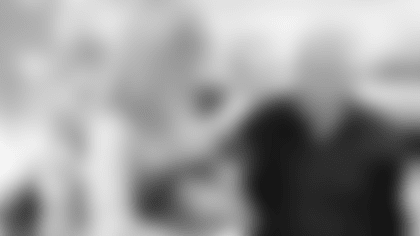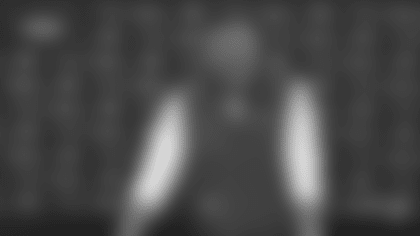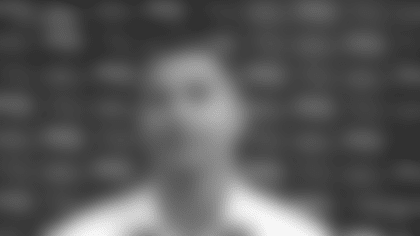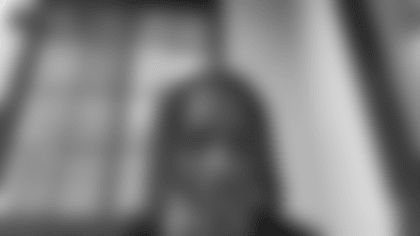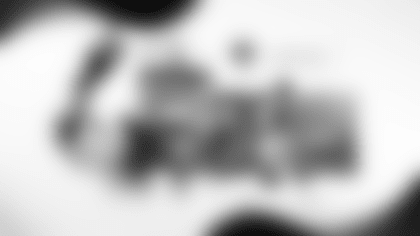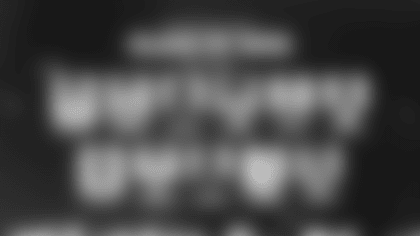HEAD COACH BILL BELICHICK
Conference Call
Tuesday, December 10, 2019
Q: What are some of the fundamental or philosophical changes you've seen between Zac Taylor and Marvin Lewis for Cincinnati?
BB: Well, I'd say probably where things have been the most consistent is on special teams, and that's with Darrin Simmons. Darrin's been with the Bengals since, I want to say, '03, so over 15 years. So, schematically they've always been one of the best special teams units that we've faced. Darrin does a great job with fundamentals, techniques, and his units are always very well-prepared. On the offensive side of the Ball with Zac and Coach [Brian] Callahan, who's the offensive coordinator, there's certainly a strong Rams presence in what they do, and that's a little different than what they've had there the past few years under Marvin, but similar to what the Rams do. But of course, it's different players and it's different matchups, and they've certainly modified some things and not everything is the same as the Rams, but that's certainly the basis of it. Defensively with Coach [Lou] Anarumo, there's a very aggressive front mentality. These guys are very good up front – [Sam] Hubbard, [Geno] Atkins, [Carlos] Dunlap. They have some very explosive and disruptive players up there that they cause a lot of problems, and they do a good job of creating negative plays and just generally being disruptive. So, we're going to have to first of all, number one – I mean, there's a lot of players that we've got to deal with there, but number one, we're going to have to deal with the front and be able to handle that. So, schematically that's a little different than the package that Marvin ran. Although upfront the players are similar, I'd say that the schematics are a little bit different than Coach Lewis' from last year.
Q: Why has Joe Mixon been so effective the last few weeks?
BB: To me, he's effective every game. He's really a hard guy to handle. Mixon is fast, he's explosive through the line of scrimmage, a hard guy to tackle and he reads blocks very well, gets vertical. It's rare to get him on negative plays; he almost always gets positive yardage. But, he's strong enough to run through tackles and he's quick enough and explosive enough to break quickly into space and get out of trouble, get away from guys. He's an inside runner, outside runner, catches the ball well, he's good on screens and checkdowns in space plays. So, this is a guy, when he gets the ball in his hands is definitely a problem. Giovani Bernard is – those guys kind of both play the same position. Bernard's a little bit more of a third-down guy, but they both will play the other complementary spot – Mixon on third-down and Bernard on some early downs as a change of pace. Bernard's a problem, too. He's, again, an excellent receiver, an excellent route-runner. I think both of those guys could fulfill either role, but they use them in tandem so that they're fresh and are able to really go in there and be productive when each one of them is on the field, and they both present a lot of problems. But, Mixon's one of the best backs we'll face; he's an outstanding player. Great toughness and really a solid football player.
Q: What have you seen from Chase Winovich in terms of his contributions to the defense in taking on a new role during his rookie season? It looks like he's being used a little differently than he was in the Michigan defense?
BB: Oh, definitely. Chase's role is definitely different than what it was at Michigan. I mean, there's some similarities – he predominantly plays on the end of the line – but, Chase has done multiple things for us. He's a smart kid and he's got a good skillset. He can run, he's got good power and strength, he's got a good motor. He's done a nice job for us in the kicking game. He's played the run well, has pass-rushed well and he's pursued and made plays down the line of scrimmage, as well. So, glad we have Chase. His role has been multiple and he's been able to mentally do a good job with it, and not just know his assignments, but also play instinctively and with good communication with of the defense because there are some adjustments and so forth that we need to make within that interior group, and he's picked those up pretty well.
Q: How rare is it for a rookie to have such a multiple role and as big a role as he has in the kicking game with his contributions on defense?
BB: Yeah. Well, I think you saw that from [Dont'a] Hightower and [Jamie] Collins when they were younger. I'm not going to put Winovich in their class yet. I mean, I think all of them are good football players, but I saw Jamie come in here, play inside, play outside, play on all the kicking units. Hightower played linebacker and defensive end in sub-situations and played in the kicking game, as well. So, they're all a little bit different, but we've been fortunate we've had some players come in here, and be able to do multiple things and contribute in different ways for us defensively fairly early in their career. And that's a big advantage. It's hard to do, but those guys have done a good job of it.
Q: Does going to Paul Brown Stadium in Cincinnati have any special meaning to you?
BB: Yeah, sure, of course. Thanks, Mike [Reiss]. I think Paul's really – Coach Brown's really the professional coach that I've probably looked up to more than any other, just in terms of the contributions he made to the game, and the professional way that he did things and the way he was able to adapt, and be innovative and creative to find ways to win. So, I've always admired Coach Brown and had the opportunity to meet him when I was younger and be around him a little bit. And then the rest of the Brown family, Mike [Brown] and Pete [Brown], who recently passed away – it's a football family, it's a football environment. And going back to those Bengals' training camps, what Coach Brown did, what started at the Severn School in Annapolis, Maryland – that was his first job – and Ohio State, Great Lakes, and the Browns and Massillon. I mean, he's just really at the epicenter of great football at every level: high school, college, and professionally in two different leagues. You know, broke the color barrier – or re-broke it, I should say – when he brought Bill Willis and Marion Motley into the league. He did so many great things for the National Football League and for football. I just don't think the game would be what it is today without his contributions and what he did for the game. My dad was close with Coach Brown and other members of Coach Brown's circle – Bill Edwards, my godfather – and so forth. So, yeah, to walk into Paul Brown Stadium and to know what he stood for, it's certainly a sense of memories, and I feel a deep debt of gratitude and appreciation for all that he did for our game, and for our sport, and for coaching, and for all that I learned from him directly and indirectly through others like Coach [Rick] Forzano, who worked for Coach Brown at the Bengals. There's just a lot of ripple effects there that I've been very blessed and fortunate to have had the opportunity to experience. So, thanks for asking, Mike.
Q: When were you first made aware of the complaint from the Bengals concerning the Patriots film crew?
BB: I guess it was sometime yesterday afternoon.
Q: What was your initial reaction when that complaint came to your attention?
BB: I mean, I had no idea what it was about, and then I got an explanation. I think the organization released that explanation or something similar to that. That's really all I know about it.
Q: Have you spoken to anyone on the Patriots content team or anyone involved in the incident?
BB: Yeah, I'm really focused on getting ready for the Bengals here. I think all that's being handled internally, or however it's being handled. I don't know. Again, I have no involvement in this and no knowledge of it, and so I really don't have any idea what exactly is going on. I can tell you that we've never, as a coaching staff and me personally, have never viewed any video footage at all of anything that those production people have done, other than what's shown on public television or something like that. But, we don't have anything to do with what they do, so I really don't have much knowledge of the situation at all.
OFFENSIVE COORDINATOR JOSH MCDANIELS
Conference Call
Tuesday, December 10, 2019
Q: On the outside, we look at a lot of the plays that are non-traditional or trick plays. Do you take the same perspective when you're dialing something up in the way you approach calling non-traditional plays? How do you view them?
JM: Those plays are – the first thing you have to do is you have to figure out – you can't just close your eyes and say, "Hey, flea flicker is good against everybody," because it isn't, or a double pass or reverse pass, or triple-reverse pass or whatever it is. You can't just – you have to really study the team you're talking about maybe using it against and there needs to be strong evidence that the reaction that you're looking for on the play that would help you have success is actually what you're going to get. I think when you find that and you really feel comfortable that that's how they're going to play something, that gives you confidence to actually put it in. To me, those plays are all about – you're depending on some people to do some different things that they're not normally doing, but you have to rep it enough to have trust and confidence that the players will do the right thing in practice and a number of times over against a number of different looks, so that if something unique happens on the play, we don't end up with something that's a bad play. As soon as you arrive at that place where you have confidence in the guys that are doing that, which may mean you run it a few times in practice and it doesn't look good and you get nothing out of it, but the worst case scenario was a 2-yard loss or an incomplete pass. And then you start to build your faith in it and your confidence in the guys that are doing it and they have confidence in making a good decision under pressure. Then I think the risk-reward becomes in your favor. To me, as soon as you feel like that, then you find the right situation in the game to think about using it and then you go ahead and pull the trigger. Really, it all is about confidence in the guys executing it and they deserve all the credit when it works too because, look, those plays aren't necessarily the easiest thing in the world to do and they're asked to do some things that are a little different on those plays and they need to do them well in order to make them go. The other night we had a couple that happened to work for us.
Q: The play of James White throwing down field to Jakobi Meyers I assume is one of those situations where you're having somebody do something that he's not accustomed to doing in a game? As opposed to the flea flicker which is still, in the end, Tom Brady throwing to Julian Edelman.
JM: Yes, and even in the flea flicker, if somebody breaks through the line of scrimmage on a play like that, you've got to – the back has the ball in his hands and he's going to try to either hand it back or flip it back or whatever. When he has the ball in his hands and he's going to then give it to somebody else, if there's something wrong up front – they blitzed into it or something and happened to hit a gap and there's a man in the back field – then again, you have to count on him to make a great decision on that play, as well. Certainly, the pass that he threw was one of those plays. There's not many more dependable guys that we've coached here that we would have more faith in making good choices and decisions under pressure than James White.
Q: When you have a new acquisition, how much of a learning process is there for the coaching staff of what those guys can do well within the scheme?
JM: I think it's kind of a dual process. He's trying really to learn our system and the things that he may have missed in the off season or training camp or all those things that a player that's acquired mid-season doesn't get a chance to go through. Then, we're learning the same things about him, like what he's good at, the things that he does well, the way he's been taught and all the rest of those things that go into a player playing in your system, in your offense, or it could be defense, special teams, whatever it is. I think both parties are doing the same thing. Mo's [Mohamed Sanu] done a great job of really immersing himself into what we're doing. We've learned a lot about Mo in the time we've had him here, and we're looking forward to trying to expand the things he does and get him to do the things he feels good about doing because I know he can really help our team produce, as he has already.
Q: As far as the rookies go like, N'Keal Harry or Jakobi Meyers, how much of what they did in college can you take and say you know what they're good at because they excelled at X,Y and Z in college? Or is it just a completely different game once they get to the pros?
JM: It's definitely a different game in every way shape or form, so there's a lot of things that they didn't see or they didn't have to deal with. There's a lot of guys in our league that they're going to get up and make things tough on you no matter what. [In] college football, sometimes you don't see that much. Coverage variations, adjustments – every team has to go through that with their players. The bottom line is they both have good skillsets. The things that they can do, we like. I've got to find more ways to use the things that they do well so that they can help produce more in their own roles, and that's what my job is with every player on the offense, and I need to do a better job of that.
Q: What did N'Keal Harry show you on the 12-yard flip that he took that you could maybe build on? Do you sometimes come out of games thinking you need to get the ball in his hands in some way to just see what he does with it?
JM: Certainly, he made a great individual effort, broke a tackle and then had good balance there to finish the play and give us an opportunity to score. He's a big guy; he's not easy to get to the ground. Certainly, when you have players like that, it comes back to how can you get him the football in those situations understanding that there's a level of diminishing returns if you try to keep doing the same things over and over again, meaning there's only so many times you can hand a player that's not a running back the ball, there's only so many times you can throw the ball behind the line of scrimmage. Whatever those are – slants, unders, et cetera – those plays are all productive plays when you have a guy that can do something with it. Brandon Bolden is another one. He had the ball in his hands the other night and did a good job of making a play. So yeah, he definitely had a great individual effort. We know he's big and not easy to tackle, and like I said, I need to do a better job of finding ways to get him in space, get him the ball and letting him have an opportunity to do those things.
Q: Your offense only converted 17 percent of third downs in this past game, which was the lowest rate we've seen from your team in a while. What factors contributed that? What can you do to fix that moving forward?
JM: Third down is what it is in our league. It's a tough down You have to get a certain number of yards; that's why it's different than every other down. Our execution and what we're trying to do and get done on those plays is really – it's got to be – that's the most important play of the series at that point in time. First down, second down and then all of a sudden here you go, you've got to make 7 yards or 5 yards or 10 yards, whatever it is, to continue moving the football. Everything is important on third down – pre-snap communication, ability to handle pressure, pass protection, coverage reads by the quarterback and the skill players, throwing, catching, running with the ball after you have it, blocking if it's a run play that you happen to choose to use. There's no small detail, there's nothing that's unimportant on third down. That's why it's so difficult. Every play you call, everything you design, needs to be well thought out and well-organized and your players have to feel good about what they're doing, and then we've got to go out there and execute it under pressure against a multitude of different looks, pressures, coverages, variations. The other night, they had a number of snaps where they tried to double multiple players and then we have to come through in other situations. It's a tough down. Our guys are working real hard at it. We're going to work real hard at it again to try to improve in that area. We need to take advantage of the opportunities that we have and we need to continue to do the fundamental things right pre-snap and post-snap on that down in order to give us the best chance to have success.
Q: What have you seen from N'Keal Harry that maybe has shown some progress that he's made in recent weeks? Also, what challenges do the Bengals present?
JM: N'Keal, number one, his ability to understand our system, our offense and how the roles we ask him to play in is different than it was three months ago because now he has a much broader foundation of it. The communication is much easier. He works his butt off every day in practice. He's here early, he's here late and he's trying to close the ground on being able to go out there and understand who he's playing against and what he needs to do to be successful. There's no shortcut to all that – we know that. I think he's got a great attitude. I think that he has a skillset that can certainly help us produce and win, and like I said, I need to do a better job of trying to find a way to get him the ball and get him involved so that he can do some of those things and do more of them. Cincinnati is an aggressive team – one-gap style on defense, really built on penetration pressure to create negative plays in long-yardage situations for the offense that they're playing against. They've really got a disruptive front four, sometimes it's five if they're in their base defense with [Sam] Hubbard and [Carlos] Dunlap on the edge, two big, long guys. [Geno] Atkins we know is a very disruptive player inside. Those guys, between the three of them, I think have 120 pressures and almost 20 sacks. They're a group that's – they have a unique play style, they're different. Geno's really short, compact and explosive and then the other two are really long, tall guys that have good movement skills as well and can press the pocket, can also be a little squirrely on the edge. They run well in the secondary and at linebacker. Shawn Williams is down near the front a lot of the time in the game and certainly leads their team in tackles, I believe, for a reason because he's near the front. You've got to block him on every snap, and that isn't easy, that's a chore. They do a good job, Lou [Anarumo] does a great job of really changing up the coverage schemes, what they're doing, how they play, their different blitz packages. This is a team that will blitz everybody. Everybody will get a turn to make some disruptive plays, which is always a challenge to your communication and ability to handle those situations well. [Cincinnati is] a team we don't know – we've played them in the past and some of the guys we know, but there's an awful lot of guys that we don't know that we need to get familiar with quickly and do a good job of studying how they play and what they do so that we can avoid them putting us in disruptive situations and long-yardage plays on offense on Sunday. Big preparation ahead of us, excited to get started on them, looking forward to the challenge.
DEFENSIVE LINE COACH BRETT BIELEMA
Conference Call
Tuesday, December 10, 2019
Q: Lawrence Guy was pretty upset about getting called for that penalty on Sunday. Regarding the challenge that those defensive linemen get in when they're rushing and something can be perceived as a hold when it might be hand fighting relative to a pass-rush situation, what's your perspective on those situations and how you coach it so they are effective with the technique?
BB: Absolutely, I think defensive linemen in general, when you're going against offensive linemen, it's a lot of one-on-one battles, but also each particular play has a different set of circumstances. LG's probably been able to play at a very high level, I would say Danny [Shelton], and AB [Adam Butler] and Deatrich [Wise] included in that grouping, is just because they play really well with their hands. We try to get as much separation as we can ,and those guys have been able to do that throughout the course of the year. When they have success, it's really been a direct result of that. The schemes that we teach and the techniques that we use are all well within the rule book, but obviously Lawrence was not happy with that call. I don't think any player, when he's flagged for a foul, will every have any joy in that moment, and that's when those moments come out.
Q: What is the mentality of a pass rusher on the defensive line when you're facing a guy like Joe Mixon? What do you coach your guys when you face a guy with a tremendous amount of leverage like Mixon?
BB: He's a very talented player. [It's] very easy to see on film preparation that he has one of the – we face a lot of great backs in this league, but I would say he stands out because he has the ability to break tackles. He's powerful, but he also has a very quick burst – the things that they do with him to free him up at the line of scrimmage in between the tackles, but then he has the ability to get the edge. As is the case week-to-week, you've got to play what's in front of you, you've got to do your job as a defensive lineman. Whether it's setting an edge or playing a two-gap technique, whatever it is, everybody has to be on high-alert. Mixon creates a lot of issues just because you do everything right and you have the ability to make a play, you've still got to get him down. That's the unique challenge of him.
Q: What was going on in your conversation with Jerome Boger on the sideline during the game on Sunday? In general, are the referees receptive to those types of conversations?
BB: Yeah, all I did is – when anything is called during the course of the game, I just want to get clarification just so we don't repeat the same mistake. I had my tablet in my hand. I don't believe they can look at it. All I was doing was just to make sure that whatever was called that we have a full understanding of it as a coach so I can relay it to my players. Obviously, the end game result is that once those things have happened, we don't want them to happen again, so I was just asking for clarification and I think we had it.
Q: Given where we are in the coaching calendar, how are you enjoying NFL life? Where do you see your situation right now relative to what you want to do?
BB: I've been in college football for 25 years. I had been exposed to the NFL just through players being drafted and evaluated. That's when my first relationship started with Coach [Bill] Belichick. Going back to Kirk Ferentz at the University of Iowa, I've been a big fan of how he did things. He drafted a lot of our players when I was at Wisconsin and Arkansas. I always kind of knew that he had an affection for our guys, but then when I got in the building here and was able to work with him and under him, just to learn the qualities that he brings, the things that he believes in were taught to me early on through Kirk. Kirk and him have a long relationship, and I've heard some of these same things before, and then to come in the building here it's been absolutely awesome. I've enjoyed my time here, love it. I've got an absolutely awesome room to work with – Danny [Shelton], LG [Lawrence Guy], AB [Adam Butler], Deatrich [Wise], during the course of the year to work with Michael [Bennett]. Just really enjoying my time, but those college opportunities have come along, I've gathered some interest. The thing that I realize every day is I love this profession. I think early on, I was at a Chinese restaurant, I got a fortune cookie that said, "Confucius says, 'Do the job you love and you'll never work a day in your life,'" and that's exactly how I feel. I've been in this business for over 25 years now and was a head coach at the age of 32, so I was really young when I got it. Whenever that opportunity comes again, it will be great, but I'm just enjoying the moment, going to work every day and learning from one of the best that's ever coached this game. It's truly a blessing.









